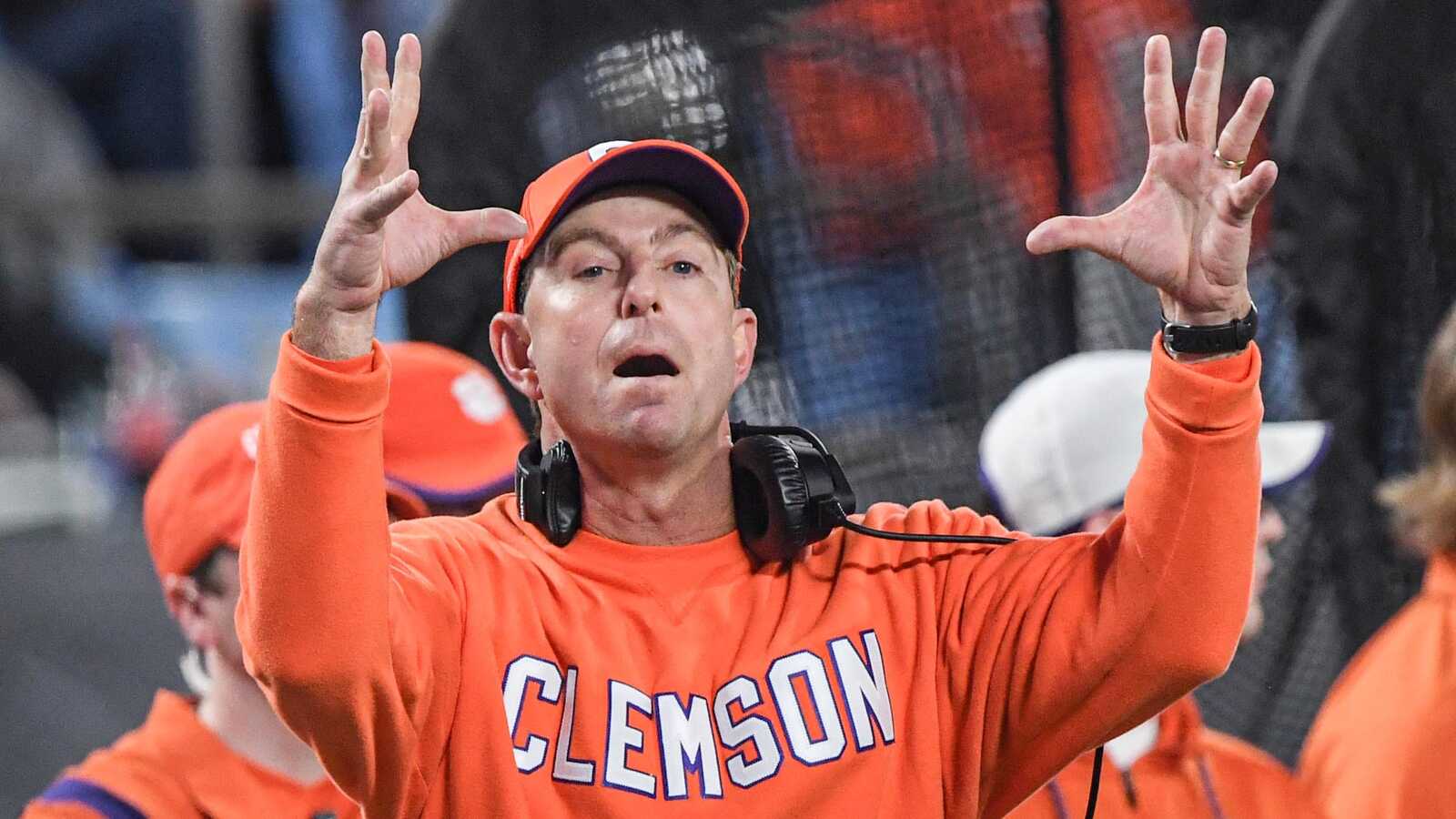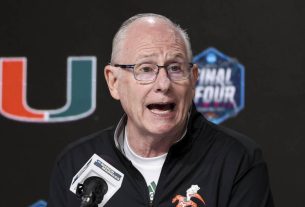Clemson coach Dabo Swinney wants to reform high school football recruiting, but his idea doesn’t seem to address major issues.
College football recruiting has undergone massive changes in recent years, including an early signing period in December. Name, image and likeness (NIL) has also upended the process, as players can now sign deals worth thousands or even millions of dollars.
Also, transfer rules have been relaxed, opening the so-called “portal,” allowing hundreds of high-profile players to change schools in the offseason.
Swinney recently spoke to 247Sports about a change he would like to see to the recruiting process.
“I wish they’d move signing day up. I wish they’d make it Aug. 1 or after Aug. 1 your senior year you can sign any time,” he told the outlet. “If they fire the head coach or the head coach leaves, then you’re not bound to it. It would protect high school recruiting. High school recruiting is in a bad spot. You got a lot of kids that were getting offers that aren’t getting offers. You’ve got a lot of kids that are committed that don’t have a spot anymore when the portal opens. All of our guys would have signed earlier if you let them.”
Besides the early signing period in December, college football also has a signing period the first week of February.
Swinney’s idea would have been fine years ago, prior to the portal. It would have helped slow the number of kids who flip their commitments when new schools get involved late. It also would give students a way out if the coaches they spoke to during the process leave.
But it does little to address the real problems with recruiting today.
First, it would lock in kids earlier, potentially leaving them high and dry if something changes in their lives. They could also face situations they didn’t expect during recruiting.
Think about it: A four-star high school WR commits to a school thinking he has a path to early playing time, but in the offseason, the coach can add through the portal two WRs who were stars in their previous conferences. That coach may leap at adding the players who can help right away.
Now the high school player is stuck with broken promises or a situation he didn’t expect. That could lead the player to the portal the next season and increases player movement.
Swinney’s idea also does nothing to address the biggest problem with recruiting, the NIL.
The changes in rules have almost made recruiting, both for high school and transfer talent, similar to professional free agency. Deals are floated to land students or entice them. In some cases, the player is just taking the most money, and who can blame him?
Swinney’s idea does nothing to address this problem, which makes it feel out of touch with the current football landscape.



